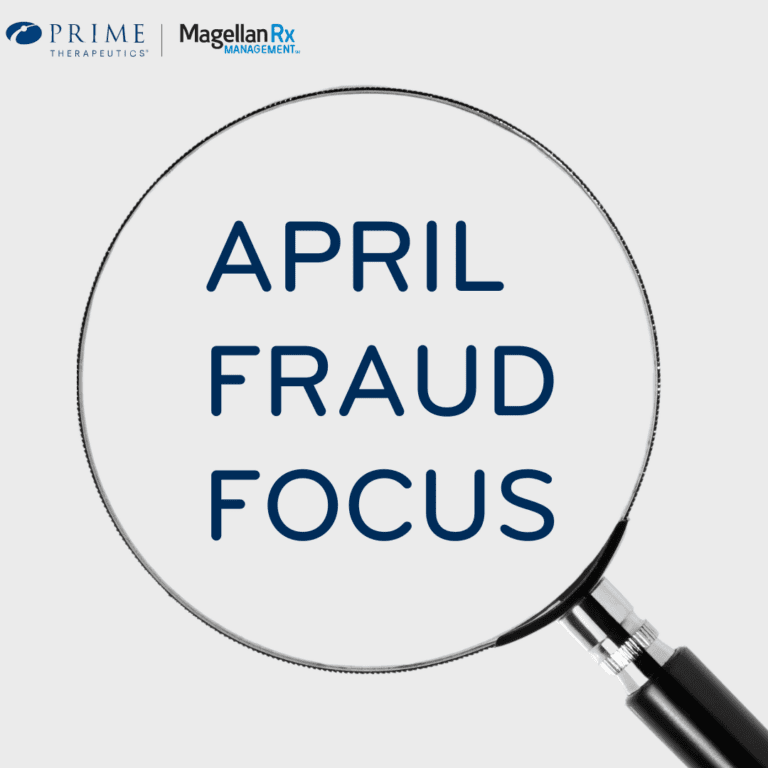Perspectives
April Fraud Focus – Protect yourself from health care fraud
April 30, 2024 Now more than ever, bad actors are finding new ways to get a hold of and to use private information. And yet, according to the Pew Research Center, 29% of Americans say data privacy isn’t a big deal to them, and another 78% trust that they’ll make the right decision when it comes to protecting their data.
Now more than ever, bad actors are finding new ways to get a hold of and to use private information. And yet, according to the Pew Research Center, 29% of Americans say data privacy isn’t a big deal to them, and another 78% trust that they’ll make the right decision when it comes to protecting their data.
The fact is, pervasive use of apps and social media, password managers and cloud storage means that there is an increasing number of avenues for your data to be compromised, and unfortunately, the health care industry is not immune to data security and fraud issues. In 2021, there were a number of health care data breaches, resulting in more than 40 million compromised patient records. Of the total data breaches reported in 2020, 60% targeted the health care industry.
Unlike other types of schemes, such as credit card fraud, health care fraud can be harder to detect and undo. The National Health Care Anti-Fraud Association (NHCAA) estimates health care fraud schemes cost consumers tens of billions of dollars every year.
What is health care fraud?
Health care fraud involves the use of false information to prey on unsuspecting victims. According to the NHCAA, this may involve:
- Billing for services or procedures that weren’t performed, or were medically unnecessary, and may use legitimate patient information.
- Billing for more expensive services or procedures than were provided or performed (a.k.a. “upcoding”).
- Posing non-covered treatments as medically necessary.
- Billing for each part of a procedure as if they are separate procedures (a.k.a. “unbundling”).
- Billing a patient more than the required copay amount for services that were pre-paid or paid-in-full by the benefit plan under the terms of a managed care contract.
- Prescribing unnecessary medications.
- Falsifying claims and diagnoses.
- Participating in illegal referrals or kickbacks.
- “Free” services that are designed to bill you and your insurance for treatments you never received.
According to the Medical Identity Theft Alliance (MIFA), more than 2 million Americans have fallen victim to medical identity theft.
How Prime/MRx helps prevent fraud
Traditional fraud, waste and abuse (FWA) models require health plans to investigate medical and prescriber claims, while pharmacy benefit managers (PBMs) handle pharmacy-related cases. This leaves a gap where fraud can flourish. At Prime Therapeutics/Magellan Rx, our best-in-class Special Investigations Unit (SIU) works alongside health plans to leverage best-in-class predictive analytics and FWA products that detect fraud and fill the gap.
There are several ways that our SIU team recommends members protect themselves and their information against fraud, including:
- Use caution when providing information online. Details such as location, previous educational institutions or other identifying information online or over the phone can be easily compromised.
- Protect your health insurance ID card. Similar to how you protect your credit card, be careful about how and with whom you share your insurance information. If you lose your ID card, report it to your insurance company.
- Keep good records. Be aware of the health care services you receive, keep records of your care and carefully review all bills you receive.
- Understand your health plan coverage. Thoroughly read your policy, Explanation of Benefits (EOB) statements and any paperwork you receive from your insurance. Contact your health plan to learn more or report concerns.
- Report fraud. Speak up, advocate for yourself and ask questions. You have the right to direct your health care, choose your providers, request medical records and billing information. After checking EOB and MyPrime account, report anything unusual to your health plan or to Prime/MRx’s Fraud Tip Hotline at fraudtiphotline@primetherapeutics.com.
When it comes to suspected fraud, trust your gut. If something seems wrong, report your concerns immediately.
Related news
Perspectives
July 25, 2024
Quarterly Drug Pipeline: July 2024
Clinical insights and competitive intelligence on anticipated drugs in development
Perspectives
July 22, 2024
Oncology Insights: 2024 ASCO Annual Meeting key findings
Findings from this year’s American Society of Clinical Oncology (ASCO) Annual Meeting will likely lead to clinical practice changes and U.S. Food and Drug Administration (FDA) drug approvals or expansions
Perspectives
July 16, 2024
LISTEN NOW: Beyond the business – Stories of corporate kindness | Pharmacy Friends Podcast
In this episode, we talk about how our employees' help goes beyond our work in health care, aiding in philanthropic efforts